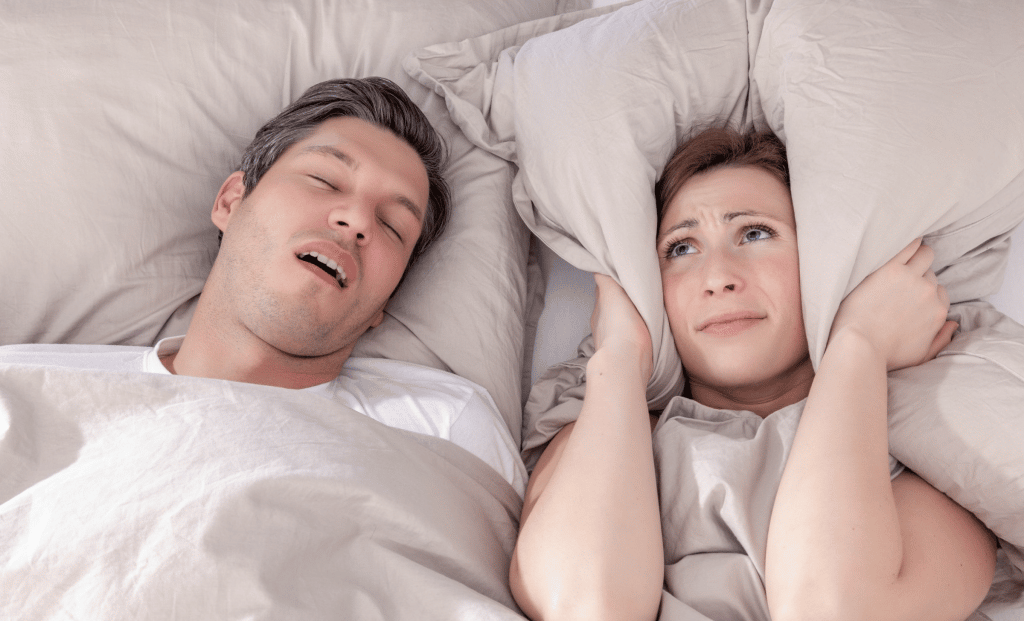If you are a heavy snorer, you may have a reason for concern. Sleep apnea is a silent but serious disorder which interrupts breathing while being asleep. It is recommended to visit an ENT specialist for sleep apnea because the condition causes breathing to stop repeatedly during sleep making it potentially a fatal condition on occasion. Untreated sleep apnea can lead to chronic diseases like high blood pressure, diabetes and stroke. This leads to a drop in the quality of life, leading to job impairment, vehicle accidents and poor performance. For children who have sleep apnea it can lead to poor grades due to lack of focus and concentration.
Dr. Annabelle Leong is an experienced ENT specialist who sees adults and children with sleep apnea. She discusses more on the topic in the article below.
Types of sleep apnea:
- Central Sleep Apnea: This happens when the respiratory control center is not signaled properly by the brain. The airways are not blocked but this condition is related to the central nervous system.
- Obstructive Sleep Apnea: This is more common than the former and it occurs due to repeated episodes of partial or complete airway blockage while sleeping. This reduces the amount of oxygen flowing to the vital organs. When obstructive sleep apnea occurs, the chest muscles and diaphragm try to open the airway, and this resumes breathing often when the body has a sudden involuntary movement or body jerk. Obstructive sleep apnea causes heart irregularities.
The symptoms to look out in sleep apnea include:
Usually, the first signs of sleep apnea are usually recognised by the partner of the individual with sleep apnea. The usual complaints include:
- Heavy Snoring
- Restlessness in daytime
- Fatigue in daytime
- Sudden awakening with gasping or choking
- Frequent sore throats and dry mouth
- Cognitive impairment
- Mood swings
- Morning headaches
- Frequent urination in the night time
Individuals with central sleep apnea usually have frequent awakenings at night and might also experience choking or gasping. There could be excessive sweating at night and children could become hyperactive or have attention deficits.
Who experiences sleep apnea?
Generally, it is more common in men with about 25% having symptoms of sleep apnea and nearly 10% of women with the condition.Sleep apnea can affect people of all ages, including babies and adults over 50 years of age and those individuals who are overweight. People who are obese too have a higher chance of having sleep apnea. In addition, having enlarged tonsils, structural abnormalities which could reduce the width of the upper airway can lead to sleep apnea. It could also be due to a nasal obstruction, having a small jaw or a low-hanging soft palate.
What is the reason behind sleep apnea?
It is caused by a block in the airway. This is generally brought about by the collapse of soft tissue at the back of the throat while sleeping. The cause behind sleep apnea is usually due to a dysfunction in the nervous system, following a stroke or due to neuromuscular diseases like amyotrophic lateral sclerosis. Patients who have chronic conditions like heart and lung diseases have a higher prevalence of experiencing sleep apnea.
Why is sleep apnea a concern?
When one stops breathing, it reduces the heart rate. This deprives the body of oxygen which can reduce the oxygen flow to vital organs. When this happens over an extended time, the body’s involuntary reflexes cause the person to jerk and wake up as a preventive measure for survival. This increases the heart rate again and the blood pressure rises.
When breathing stops acute changes can happen. Chronic changes too can occur in one’s body when sleep apnea happens and this is seen when the body experiences 30 times or more breathing stops in an hour. The blood pressure can go up and the heart walls can thicken due to an increased workload. This causes the structures of the heart to change. It can cause the heart muscles to become stiffer and less flexible. This leads to atrial and ventricular irregularities in the heart beating. Thus, it reduces the heart functions making the heart less efficient in carrying out blood circulation around the body.
How is it diagnosed by an ENT doctor?
If the ENT doctor feels that the person has symptoms suggestive of sleep apnea, then a sleep evaluation test will be done. This is done to objectively evaluate sleep apnea.
- A polysomnogram may be done which includes sleep testing overnight. This is done under the supervision of a trained technician. During the test, electrical activity of the brain, eye movements, heart rate and breathing patterns are monitored. The breathing interruption is studied and the severity of the sleep apnea graded.
- Home sleep tests may be done for adults. This records fewer body functions than the polysomnogram. However this is not a good screening tool for patients who do not have symptoms and is also not widely used for patients with an underlying chronic condition.
Angela Spearman is a journalist at EzineMark who enjoys writing about the latest trending technology and business news.

